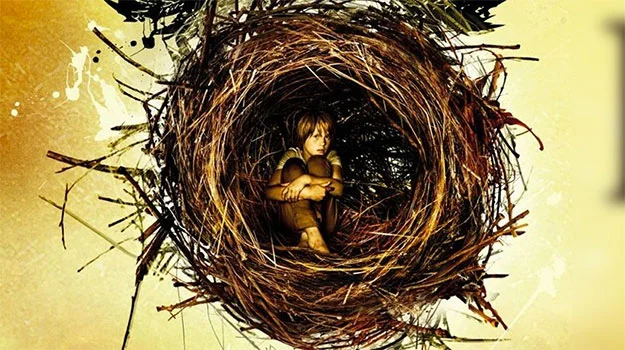A Cursed Idea: J.K. Rowling's Magic is Finally Running Out
/Longtime Harry Potter fans appear to be either rejoicing or deeply concerned, as J.K. Rowling proves not ready to let “The Boy Who Lived” rest in peace. Nine years after concluding her series of unprecedented success, Harry Potter and the Cursed Child is released as the unexpected eighth entry, but with a stylistic twist. With help from playwright Jack Thorne and director John Tiffany, Rowling takes Potter to the West End stage as a live play, and sells the rehearsal script to the masses.
The story picks up exactly where the series wrapped up: 19 years after his triumph over the Dark Lord, Harry says goodbye to his second oldest son, Albus Severus Potter, as he departs for Hogwarts. Unfortunately for Albus this is no “like father, like son” story. The first few scenes jump through his early years at Hogwarts and immediately paint a different experience than what we have heard before, namely, Albus's placement in Slytherin, the antagonizing house of his family. The differences he exhibits from Harry do not end there. Unlike his father, Albus has no genetic aptitude for magic or Quidditch and, to his peers, he appears completely non-miraculous; just another kid born with a famous name. Hand in hand with his best friend Scorpius Malfoy, the son of his father’s nemesis, the two struggle as outsiders living in their parent’s shadows. Scorpius, while much more studious and optimistic than his comrade, finds no solace at Hogwarts either. Rumours that he is the secret child of the Dark Lord follow him everywhere he goes, causing his other classmates to bully him and keep their distance.
“The Cursed Child reads like subpar fan-fiction written by someone desperate to cling to this magical world.”
Harry Potter, for all his natural talent, struggles to relate to his son on a parental level. In an argument between the two, Albus vents his frustration by telling Harry he never asked to be his son. In a confusing, shoehorned response, Harry responds, “there are times where I wish you weren’t." This clichéd parental conflict is what sends us to the main plot of the play, where Albus sets out with Scorpius to do what his father never could: save the life of Cedric Diggory. With the help of Cedric's (conveniently never mentioned) cousin, Delphini, and the last time-turner in existence, the three go back in time on their rescue mission.
As a standalone entry, the Cursed Child sends mixed messages. As part of a series, this disconnect is even more apparent. Harry Potter, even from the first book, is a tale about choosing your own path and challenging destiny. This new entry seems to convey the exact opposite. In the first few scenes, Harry tells Albus that if he truly is concerned about what house he ends up in, he can always ask to be put in a different one (“I promise it will work, after all, it did for me”). However, no choice was offered or taken into account once the hat touched his head; he was shouting “SLYTHERIN” after a few moments. No freedom of choice, no destiny challenged, and his own path is not chosen. This “make the best of your scenario” is continually instilled throughout the book, with the one destiny-challenging moment becoming the primary conflict of the story. The grand happy ending the characters strive for in this play is… exactly where they started.
For the die-hard Harry Potter fans, Harry Potter and the Cursed Child serves as an excellent high school reunion, reconnecting the reader with the characters many of whom grew up with and “seeing what they’re up to these days." Apart from that, the play drops the charm and depth famous for hooking an entire generation on to the series. To avoid the plot holes this bout of time travel brings to the table, I would recommend omitting this script when discussing the Harry Potter series. Ultimately, however, The Cursed Child reads like subpar fan-fiction written by someone desperate to cling to this magical world, and based on Rowling’s history of continuously adding unnecessary standalone details to the series via twitter and interviews, this analysis may not be far from the truth.
Nick Gibbins
Nick Gibbins is a writer, competitive gamer, and resident big mouth. He tends to prefer acting on impulse and writing the aftermath over observing how things play out on their own. Currently in his second year in Algonquin College’s Professional Writing program, Nick plans to mesh all of his hobbies together to pay the bills.


